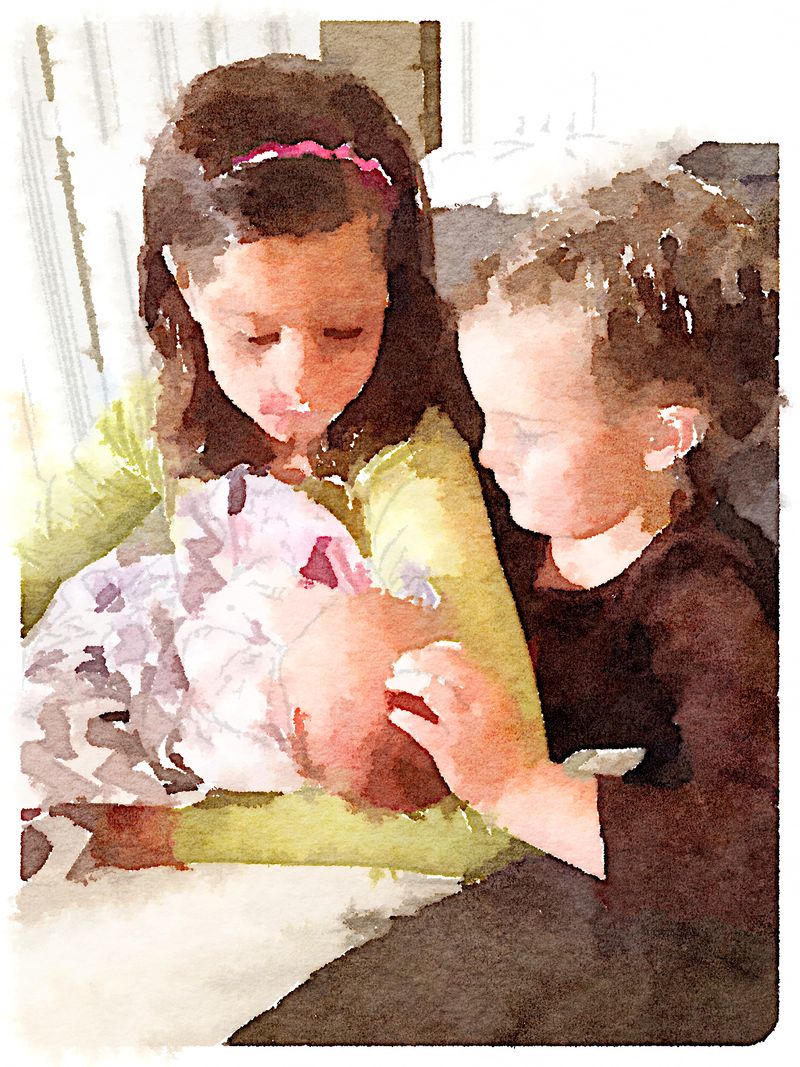...and when they are OLD they will not depart from it.
/I am in the orthodontist’s office as I write this morning. Katie, my 11-year-old, is a frequent visitor here. She has a knack for popping the brackets off her teeth. My orthodontist is the most patient of medical men. He sees her coming, flashes a wide (and nearly perfect) grin, and assures her that whatever has gone astray can be pushed back into place. It’s a process, he contends, and he’s in it for the long haul.
The brackets and braces are adjusted once again, everything is glued in place, and she leaves confident that all will be well (and sometimes more than a little sore). All will be well. Her teeth, once growing every which way in her mouth, are being trained to be straight. They want to fight the new posture, to go with the natural bent, but again and again, they are brought back into line and held there. Most of the hard work will be finished by the time Katie is in her mid-teens. Then, according to the plan, a retainer will hold them in place, and when she is old they will not depart from the straight and narrow path.
You see where this is going, don’t you?
Train up a child in the way he should go, and when he is old he will not depart from it”
(Proverbs 22:6).
Parents are assured that the careful, patient training of a child when he is young will mean that when he is old he will not depart from it. It’s not the simplistic, formulaic promise that some would have a new mom believe. I will never tell you that if you just raise them a certain way, they’ll never stray from what is good and noble and true. But God does promise that when they are old, they will not depart from the way they should go.
It’s still a little hazy when “old” is, but my hunch is that some children take longer than others to get there. The other day, I saw a young man leaving the orthodontist with a full set of braces — for the second time. Things didn’t go according to plan the first time — mostly because of patient noncompliance — so the process was begun again. He’ll get there. He’s just taking the circuitous route. He’s slow to grow old.
This training business is continuous work. When our children are young, we are called to imprint the good upon their hearts, to make an impression so lasting that it is indelibly written into the story of their lives. We hold them close, we meet their needs, we let them know that they are loved and valued. We respond again and again, and they grow to know what love is.
Such responsive parenting requires sacrifice on the part of parents. It might be the first time they’ve had to lay down their lives. First and foremost, parents have to live the life of virtue to which we want children to aspire. It begins when we answer the cry of an infant, and I’m pretty sure it lasts until we draw our last breath. It’s easier said then done. So, when we falter and fail, we model for them seeking and receiving the grace of forgiveness and the amendment of our ways. This raising children gig makes grown-ups of the parents.
Children need clear expectations. We train them in the way they should go a little at a time. With every small event — a trip to the store, a family dinner, a play date with a friend — we offer clear expectations and the reasoning behind excellent behavior. And we follow through on the expectation; a disciplined parent is the key to a disciplined child.
Training children well in the way they should go requires a quantity of quality time. Both are essential. Quantity: We have to be with our children in order to coach them. We can’t correct and advise if we aren’t there. That means we drive the carpool, stand on the sidelines, invite the friends into our homes. Such engagement requires a quality of time, too. It isn’t enough to be there if we are glued to a smartphone or disengaged from the conversation when we are sharing space with a child. We have to be fully present in order to effectively train fully engaged, wholehearted excellent behavior.
We train children to be virtuous when we talk to them about our world, when we share our insights and seek their observations and concerns. An intimate relationship with a child means that they become more aware as they grow older. They see the challenges their parents face, and they watch them respond with strength of character. Sure, the children are being trained, but we are being trained also; being a good parent is a call to a higher standard. Some of us aren’t quite “old” yet ourselves. There are moments— maybe even days or whole seasons — when mothers and fathers have to dig deep and discipline ourselves to meet the real needs of our children. They want connection — encouragement, affirmation, security, warmth and, yes, consistent grace-filled correction. It is as essential to a soul that a child receive those things from her parents as it is to her body to receive food and shelter.
With careful attention, plenty of fine tuning, and maybe a little discomfort, children will learn the way they should go. And when they are old, they will smile broadly the confident grin of a virtuous soul.






